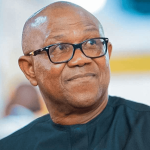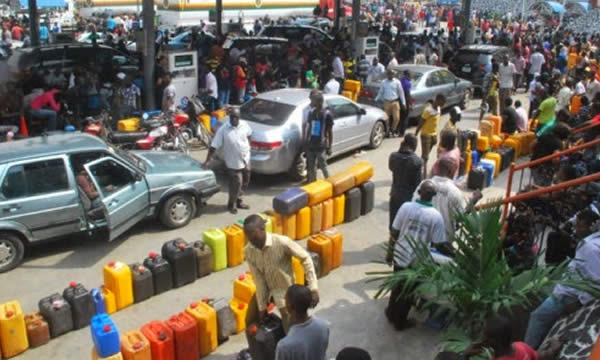The National Association of Energy Correspondents has called on the Nigerian National Petroleum Corporation Limited and Nigerian Upstream Regulatory Commission to find a lasting solution to the lingering fuel scarcity in the country.
A statement signed by the association’s chairman, Olu Phillips, and secretary, John Meze, lamented that the development has led to man-hour loss, which ought to have been put into productive ventures but wasted at filling stations.
“While long queues persisted, stations now sell at N185 per litre in Lagos and other parts of Nigeria, other marketers have started to take advantage of the situation, causing serious hardship to Nigerians and dislocation to the market through hoarding and profiteering.
“Black marketers have not only returned, but they have also been smiling to the banks at the detriment of helpless and hapless Nigerians,” the statement read in part.
NAEC claimed that NNPCL stations and marketers, both independent and major, had hiked pump prices for premium motor spirit, otherwise known as petrol, for the second time in less than 60 days., saying the lowest price for the product was N185 per litre from N175 per litre it sold two months ago.
According to the association, the low-price band for the product was N165 per litre before the current fuel scarcity.
It said most independent petroleum marketers’ retail outlets had been reported to have also adjusted their pump price to between N290 to N300 per litre in tune with current market reality.
The development, according to the Association, portends grave implications for the already weakened purchasing power and income of an average Nigerian.
‘‘Already the high cost of petrol is impacting the daily cost of living as seen in transportation costs, energy costs as many homes continue to rely on alternative sources of power due to the poor supply from the grid as well as in high cost of goods and services. The traffic situation across the metropolis is also worsening as a result of prolonged fuel queues, causing high loss of man hours that could have been deployed to productive activities,” it also stated.
Though marketers have attributed the present petrol queues across the country to exceptionally high demand and bottlenecks in the fuel distribution chain, the association said it was clear that the distribution value chain has broken and worsened by a weak regulatory system.
“It is bad enough that there is no one to hold to account. It is worse than the government has jeopardised the interest of the masses in politics, considering that elections are near,” it added.
“We observe that the major arguments advanced by both government agencies and market players for the lingering fuel scarcity are price regulation and domestic energy subsidy. However, we also note that energy subsidy is a normal and effective economic growth stimulation strategy still employed by all developed countries of the world to tame the cost of production and guarantee the well-being of citizens. What we observe is that the subsidy system in Nigeria has been enmeshed in corruption and mismanagement.
“NNPCL has not only become the sole beneficiary of the subsidy provision by taking the role of sole market supplier, it has also shielded all supply transactions with implication for the subsidy from public scrutiny,” it added.
Source: The Punch








